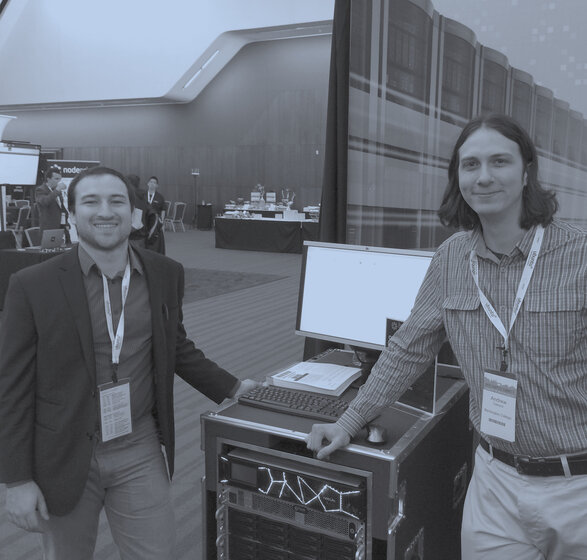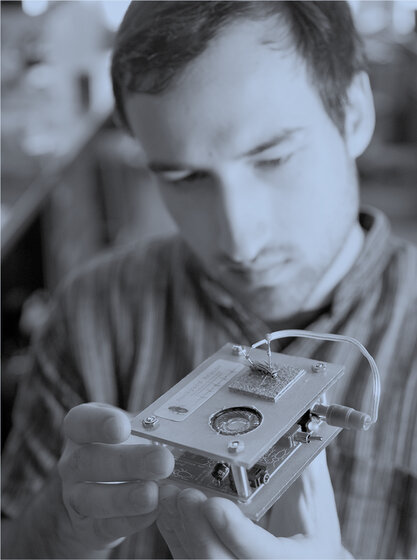Changing Course
A single Field Work Term internship changed everything.


Ben Broderick Phillips’ central passion is informal education—education that takes place outside of a formal school setting. He has built a resume around his passion interning with the Exploratorium, a pioneering hands-on science museum; the Boston Museum of Science; and Genspace, the first community biotechnology laboratory.
Ben planned to pursue an internship that would have added another layer of informal education experience to his resume for his final Field Work Term. That was until Andrew Cencini, computing faculty member at Bennington, invited his students to apply for two programming internships with Nebula—a tech startup founded by NASA’s former chief technology officer.
“Previously, the company only engaged interns from Stanford and Waterloo but now the executives are asking me, ‘Who can you get us from Bennington?’”
Programming is one of Ben’s casual interests. He loves the problem solving involved, the challenge, and he really likes that he doesn’t bore of it easily. “So when the opportunity to put these skills to professional test came around I felt like it was something I shouldn’t pass up,” Ben explains. “It would let me engage in programming and give me a feel for startup culture. I decided to change course, follow my programming interest on a whim, and do something that is a little less relevant to my Plan. When else would I be able to do that?”
Ben and fellow classmate Pratham Joshi were expected to make huge things happen for Nebula in the seven weeks they worked for the company. And they did. With Andrew they created patent-pending work for Nebula, work that will open huge doors for them at Nebula and industry-wide. In fact, they are pretty much guaranteed a job if they want one. It’s something Ben is seriously considering. “I have had a lot of great experiences working in informal education settings,” he explains. “And I do want to go into that field at some point, but this seems like a lucrative opportunity and something that isn’t one I could easily launch into later. Plus, I see ways I could bring this work into informal education.”
And while it is nice to have many job options waiting for you when you graduate, Ben says that was not what he valued most about FWT. “It’s not exactly what I’ve done that has made FWT significant, or the opportunities it will lead to, but it’s what I got to see, what I got to be a part of that have made these experiences invaluable.”
Learning from pros:
“I can do a lot for students, but if you want a job in the tech industry you have to have serious experience working on strong and interesting projects—and that is exactly what Ben and Pratham gained during Field Work Term. Frankly, they learned more in those seven weeks than I would have been able to teach them in an entire year. Those seven weeks were not about trying, they were only about doing. It was sink or swim. It was terrifying, it could keep you up at night, but they did it. They surprised and impressed me, and the executives at Nebula. Previously, the company only engaged interns from Stanford and Waterloo but now the executives are asking me, ‘Who can you get us from Bennington?’’’
—Andrew Cencini is a prime example of a Bennington teacher-practitioner. Before coming to Bennington, he amassed years of experience in the technology industry. He’s worked on Microsoft’s SQL Server, MSN Search (aka Bing), and his code runs servers and hardware worldwide. And he continues to work in the tech industry, most recently with Nebula. Cencini wants his students to experience the realities of what it is to program and work with industry luminaries, which is why he arranged the internships. He knows well that it is in this context that students truly push on their knowledge and expertise, and shape it so that it is relevant in the field.å